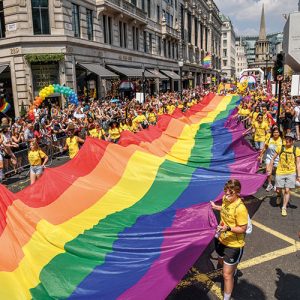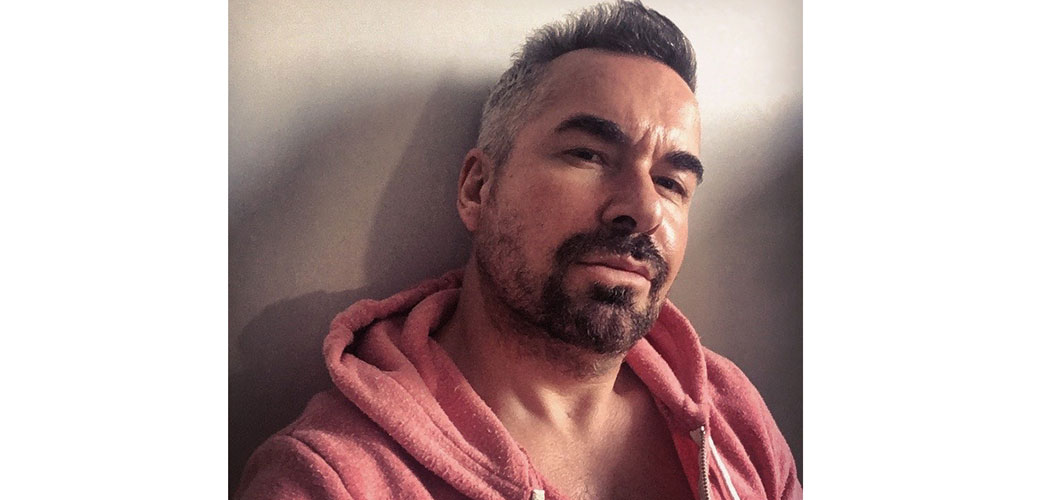Pride is meant to be a happy day but what does it mean to those within the LGBTQ community who live with mental illness? Is it a day for celebration or a reminder that being different and struggling to fit in isn’t cured by being wrapped up in a rainbow flag, sprinkled with glitter and taking part in a celebration of all things queer. Daniel Warner draws on his experience to give us his perspective on the big day.

Pride is the day where we are all expected to show just how well adjusted and accepting we are of our sexuality. It’s a day of celebration and remembrance, it’s a time when we get together as a community to make a statement, be it political or personal. Some of us take it as an opportunity to make the most effort to look and feel fabulous, after all, it’s our day. It’s something we have fought for and something we must never take for granted but what we need to remember is that there are a huge number of people within our community who struggle everyday with mental illness, so what does Pride mean to them?
Evidence suggests that people who identify as LGBTQ are at a higher risk of experiencing poor mental health and there are a number of reasons for this, including discrimination and inequality. Depression, anxiety and suicidal thoughts are common and once drugs, alcohol, the fear of HIV and a pressure to look a certain way are thrown into that mix, it’s no wonder that a study by Stonewall found that LGBTQ people are more susceptible to having suicidal thoughts and self-harming.
So what can we do if we are struggling ourselves or know a friend, relative or partner who finds it difficult on the one day of the year when we are supposed to shake off all our worries, insecurities and fears and are surrounded by thousands of other LGBTQ people who are out to party?
As someone who has experienced mental illness, the day of Pride can be a tough one. For many of us it can be the push we need to put on a happy face and celebrate, even if that’s not how we are feeling inside. It can be a day full of heightened emotions, good and bad. It can bring up memories of discrimination or of loss and it can also make us acutely aware of how far we have come or on a personal level, how little we have achieved.
It’s difficult to not get caught up in the excitement and joy of Pride, be it at the march, watching acts in Trafalgar Square or being stuck within the crowds in Soho. Our anxiety levels can be heightened and for some of us it can all get a little bit too much.
Being over emotional at Pride is common. We feel a great sense of togetherness and camaraderie; it’s a wonderful opportunity to meet up with old friends and to make new ones but what if you struggle with being in a crowd or being in a situation where you are not in control of what’s going on around you?
The noise levels are high, the energy of the crowd is exciting but it can get over bearing and a sense of fear and panic can sometimes take over. So what’s the answer? Do you stay home and once again feel you’ve let yourself and your friends down or do you medicate yourself with alcohol or some other substance?
Pride for me is such an important day but for the last two years I’ve felt such a pressure to be involved and to enjoy myself that I have left London for the weekend and not attended. It’s been difficult to explain to friends who think they’ve been let down at the last minute, especially as plans, outfits and expectations are made and held to a very high standard.
It’s not easy for some of us to decide how we are going to feel on the day of Pride. It’s expected that we are going to wake up and be in the mood to march, party and celebrate but who dictates that we all need to feel this way? Many of us are acutely aware of the need to dress up and show up, whatever the weather and whatever the mood but it can be the one day of the year when everything gets to be a little bit too much.
This year, I am excited to attend Pride. I’ve made plans with the friends I know who are aware of how my moods can affect me and how I can be especially sensitive to the environment I am in. I know the friends I will be with will support me if I decide I need to leave or if there is a time when it is best to find a quiet space and take a moment to be calm.
Pride is a day for everyone and for all members of our community. If you do know someone who struggles on this day then be kind to them and try to understand that sometimes the effort it takes to stand up and be proud runs a lot deeper than just showing up and waving a rainbow flag.
If you see someone at the march, in Trafalgar Square or in a club or a bar who may be struggling then just show them that you are able and willing to help. Sometimes the best thing you can do is just to reassure that member of our community that it’s OK to not always be OK, even when it’s Pride day.
If you are living with mental illness and need advice check out LGBT Mind at mind.org.uk. If you have issues surrounding drugs or alcohol check out London Friend at londonfriend.org.uk














